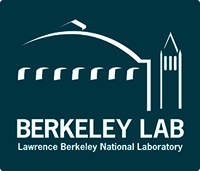Newswise — Fans of science history can now access a new gem: a 20-minute video interview with the father of the Big Bang theory, Belgian Catholic priest and physicist Georges Lemaître.
The full recording, originally aired in 1964, was thought to be lost – with only a short excerpt preserved. In 2022, the 20-minute interview was discovered in the archives of Vlaamse Radio- en Televisieomroeporganisatie (VRT), the national public broadcasting network for Belgium’s Flemish community.
In the video, Lemaître discusses the beginnings of the universe and his “hypothesis of the primeval atom,” the idea that our universe expanded from a single point. This concept, which Lemaître first proposed in 1931, evolved into the Big Bang theory now widely accepted by cosmologists.
“Of all the people who came up with the framework of cosmology that we’re working with now, there’s very few recordings of how they talked about their work,” said Satya Gontcho A Gontcho, a scientist at the Department of Energy’s Lawrence Berkeley National Laboratory (Berkeley Lab). “To hear the turns of phrase and how things were discussed…It feels like peeking through time.”
Gontcho A Gontcho partnered with two researchers at the Vatican Observatory, Jean-Baptiste Kikwaya Eluo and Paul Gabor, to make the Lemaître video more accessible. The interview was conducted in French and aired with Flemish subtitles. The English translation (led by Gontcho A Gontcho) and French transcription are now available in a paper on the arXiv, an open-access collection of scientific articles.
“Lemaître and others gave us the mathematical framework that forms the basis of our current efforts to understand our universe,” said Gontcho A Gontcho, who works on the Dark Energy Spectroscopic Instrument (DESI). In particular, scientists want to understand dark matter, the skeleton of our universe, and dark energy, which is making it expand faster and faster.
“Cosmology is trying to understand what happened in the universe’s past – and for most of us who do observations, that means measuring, very precisely, the rate of acceleration of the universe at different moments in time,” Gontcho A Gontcho said. “And if you understand how the universe has expanded at different moments in time, then you’re able to narrow down what dark energy could be.”
###
Founded in 1931 on the belief that the biggest scientific challenges are best addressed by teams, Lawrence Berkeley National Laboratory and its scientists have been recognized with 16 Nobel Prizes. Today, Berkeley Lab researchers develop sustainable energy and environmental solutions, create useful new materials, advance the frontiers of computing, and probe the mysteries of life, matter, and the universe. Scientists from around the world rely on the Lab’s facilities for their own discovery science. Berkeley Lab is a multiprogram national laboratory, managed by the University of California for the U.S. Department of Energy’s Office of Science.
DOE’s Office of Science is the single largest supporter of basic research in the physical sciences in the United States, and is working to address some of the most pressing challenges of our time. For more information, please visit energy.gov/science.
